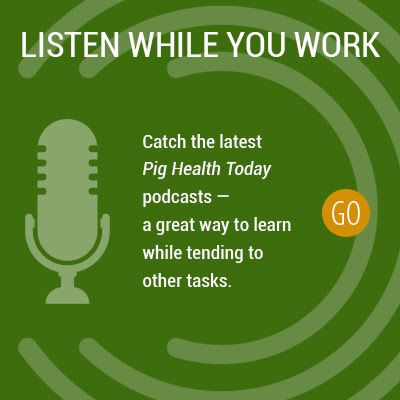Positive interactions with sows reduce piglet crushing
Encouraging staff to have more direct involvement with managing and handling sows can have positive impacts on herd welfare and mortality rates, say scientists.
Researchers at the University of Copenhagen found that as little as 15 seconds of direct contact with sows five days before and after farrowing can significantly improve sow behaviour.
When combined with playing classical music — a strategy which has been shown to relax humans and dogs — in sow units for up to 12 hours a day, mortality during lactation was reduced by 2%, researchers found.
In a project designed to find ways to reduce piglet mortality caused by crushing, researchers attempted to find ways to make sows calmer so they react less when people enter farrowing units.
Project leader Vivi Aarestrup Moustsen, PhD, said the development of highly prolific sows and loose housing systems meant piglet mortality through crushing is becoming an increasing challenge for pig producers.
“With increases in herd sizes, we are also seeing more caretakers in the barn who need to learn have to look after piglets, so we have new challenges when it comes to piglet survival,” she said.
Carried out as part of the European Union’s PROHEALTH project, the study involved playing classical music to two different herds, as well as encouraging staff to have ‘positive interactions’ with each sow every day.
“People came in and stroked the neck of the sows in the days proper to farrowing,” Aarestrup Moustsen said. “Stroking meant that the sows were less reactive, which is very important when we handle the piglets.”
Aarestrup Moustsen said the two herds saw definite improvements, with sows reacting more calmly to handling after farrowing.
Meanwhile a second study in the project that analyzed mortality rates of positively handled sows discovered mortality during lactation were reduced by 2%.
As well as reducing piglet mortality, Aarestrup Moustsen said improving sow behavior through handling also created a safer and more pleasant working environment for staff.
“In our study, the farm staff involved said they enjoyed spending more time with the animals, and that’s something we could really focus on,” she said.
“Lots of people enjoy working in kindergartens with children, and in many respects working in a farrowing unit is like a kindergarten. The sows are happy if you treat them well, in the same way that mums are happy if their children are well looked after.
“If we can tell that story, and show people that they have a potential to make a difference to many lives, then we can motivate people and create jobs in an industry they are happy to be part of.”
Posted on August 13, 2019

















